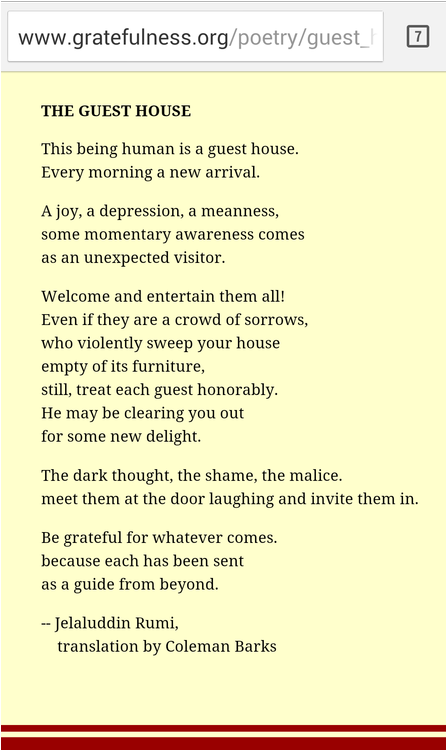As we discussed the Introduction to the evening's texts, we focused on the term "tribes". For us, the tribes we associate with are our families, our communities, our nation, our society. These shape us deeply into who we are; "we learn to love whatever our tribe loves." As we enter into solitude we make ourselves strangers to our "tribes" which allows us to discover our own voice; the true self outside of the forces that have shaped us. This very much seemed to capture the flavor of Matthew 10:29-30: “Amen, I say to you, there is no one who has given up house or brothers or sisters or mother or father or children or lands for my sake and for the sake of the gospel 30 who will not receive a hundred times more now in this present age" It takes courage to let go of the certainty of our tribal knowledge and immerse our the unknown quest for our own voice and trust it even if it differs from that of our tribe.
In looking closely at Merton we discussed how Solitude is an act, a conscious choice that has substance to those who undertake it with purpose. The work of Solitude is the active work of "destroying all fences and throwing away all the disguises, getting down to the naked core of one's inmost desire, which is the desire of liberty-reality". In other words, Solitude opens us up to our desire to be our true selves, and to do this requires that we explore, question and strip away all those identities we inherited or were imposed upon us by our tribes that we find do not resonate with who we are. Once we find out true self in solitude, through discipline we engage in an active life which "keeps body and soul together, harmonizes their powers, brings them into deep resonance, orients the whole being toward the root of being." Without such a discipline, "the active life can be that which is most passive: one is simply driven, carried, batted around, moved. The most desperate illusion and the most common one is to fling oneself into the mass that is in movement and be carried along with it: to be part of the stream of traffic going nowhere but with a great sense of phony purpose."
As we looked at Another Voice, an excerpt from When Things Fall Apart by Pema Chodron, we were struck by what it means to be fully alive to the messiness (and excitement) of life's experience: "Seeking security or perfection, rejoicing in feeling confirmed and whole, self-contained and comfortable, is some kind of death... We are killing the moment by controlling our experience. Doing this is setting ourselves up for failure, because sooner or later, we're going to have an experience we can't control...The essence of life is that it's challenging.... From an awakened perspective, trying to tie up all the loose ends and finally get it together is death, because it involves rejecting a lot of your basic experience. To be fully alive, fully human and completely awake is to be continually thrown out of the nest. To live fully is to be always in no-man's land, to experience each moment as completely new and fresh. To live is to be willing to die over and over again. From the awakened point of view, that's life." Living this way takes courage, but provides us true freedom in our willingness to accept what comes and trust that it is for our own benefit. Rumi's Poem - The Guest House speaks to living this attitude:


 RSS Feed
RSS Feed